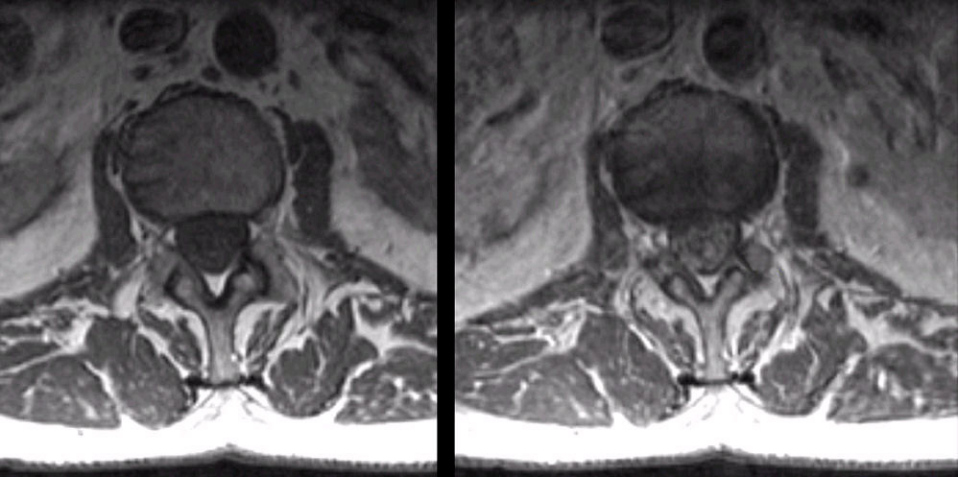
|
A 52 year-old man with a history of lymphoma, previously treated, presented with progressive weakness and numbness of the legs with bladder and bowel incontinence and perineal numbness. |

![]()
| Neurolymphomatosis:
(Left) T1-weighted axial MRI;
(Right) T1-weighted with gadolinium axial MRI. These images
are at the L1 level. Note that the conus and surrounding nerve roots enhance with gadolinium. Subsequent CSF analysis
showed lymphoma cells. It is important to remember that
radiculopathy can be caused not only by external compression (e.g.,
disk, spondylosis) but also by infiltration of the nerve root(s) by
tumor or granulomatous tissue. Neurolymphomatosis may occur in isolation, or as part of widely systemic lymphoma either during the initial diagnosis or as the first sign of relapse in a treated patient. It is much more frequently seen in non-Hodgkins compared with Hodgkins lymphoma. It presents as a progressive sensorimotor polyneuropathy, cauda equina syndrome or isolated mononeuropathy (the sciatic nerve being the most common). |
Revised
11/30/06
Copyrighted 2006. David C Preston